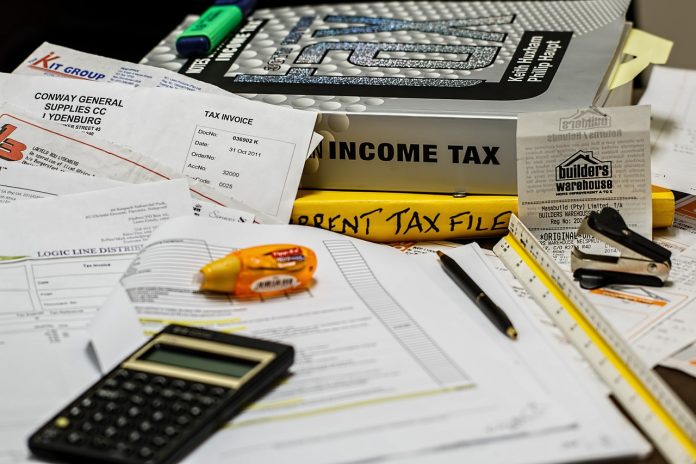
Your first year in business can be pretty overwhelming. From the diverse learning, making mistakes, hitting incredible highs, questioning your opinions, and most of all, filing taxes.
We know taxes are quite challenging, especially if you have no background in accounting/ but, it shouldn’t take away the exhilaration of being your own boss.
It’s typical for most small business owners to panic or experience emotional storms during tax season. It happens even to the most prominent and successful entrepreneurs or organizations. Still, tax season doesn’t have to leave you defeated, especially if it’s your first time filing returns for your small business.
The following are key insights to keep in mind when filing your first tax returns for your growing venture. Even better, you will learn how to file returns accurately, timely, and optimally to achieve appropriate tax refunds.
Tips for Filing Your First Tax Return as a Small Business Owner
Organize Your Records
First and foremost, organize your accounting records. Scrutinize the copy of business tax returns you intend to file to figure out all the documents, figures, and items you will have to produce. For instance, in our case, you have to deliver answers on the nature of your business, how long you’ve been into it, and the location.
Take a look at your firm’s chart of accounts and ensure that the income and expenses categories are accurate, correctly listed, and complete.
Organizing such records and thoroughly assessing the business tax return might not be a forte many small business owners excel in. However, you can ask for help from someone who can guide you through the process. Yes, considering that it’s your first year in the business, it’s reasonable to think that the costs of hiring a certified accountant might be on the high-end. Well, think again. Outsourcing for a qualified accountant can be a lifesaver by helping you avoid costly mistakes.
Select The Accounting Basis To Use
One of the best perks of being your own boss is that you’ll have the freedom to make executive decisions. And choosing the appropriate accounting method that works for you is a fitting example. Nonetheless, you have to inform the taxman of your preferred method.
Primarily, there are two methods you can use to prepare tax returns—the cash or accrual basis. The cash basis involves acknowledging income only after receiving it and recognizing expenses after settling them. On the other hand, the accrual method entails recording expenses exclusively after incurring them and accounting for revenues after a sale.
As a small business owner, a cash basis might be a viable option. Or at least momentarily. When your growing venture secures a solid chance of success, switching to the accrual method would be best. The accrual method is ideal for organizations with more enormous revenues or inventories.
Select a Depreciation Method
Another critical consideration is choosing an appropriate depreciation method to use. Bear in mind a depreciation of your venture’s assets or properties may provide you with an overlooked tax deduction.
In most cases, the taxman allows a first-year deduction for depreciating assets such as buildings, equipment, and other minor accessories instead of writing off the cost over five or more years.
The declining balance method allows entrepreneurs to take significant depreciation deductions in the first few years of an asset’s useful life and less significant deductions in later years. Most small businesses chose to take a first-year write-off instead of writing off the cost in later years to take a valuable tax deduction.
It would be best to know the cost of your assets, the expected useful life, the salvage value, and the depreciation rate before opting for the decline balance method. Additionally, it’s impractical to deduct the first-year depreciation write-off for firms without any profits. However, you can carry it forward to gainful years.
Separate Personal and Business Expenses
Needless to say that the line between personal and business expenses should be clear, and at no time should you ever mix the two. However, it can somehow be a complex scenario for sole proprietors who use their residential ground as part of their business area.
In this case, you ought to deduct a portion of your residence as a business location. How? Measure the square footing used for business and remove it from the total square footage of the home. Then you can lay claim to a segment of the area used as a home office.
Be Mindful of Tax Filing Deadlines
Missing out on tax filing dates or forgetting altogether can cost your small business significant repercussions. Additional interest and hefty penalties in your first year as an entrepreneur could turn out to be a massive setback for your yet-to-be-established venture.
Therefore, start the tax filing process as soon as possible. Then, in case of any mishaps, such as lack of cash flow, you will have enough time to rectify and meet the due dates.
Also, if you can’t afford the total business taxes, don’t use that as a justification for failing to file the taxes. Generally, the failure-to-file penalty is significantly heftier than the failure-to-pay penalty.
To sum it up, it would be best to consider other alternative lending options to boost your cash flow and settle the total amount at once.
Bonus Tips That Will Be Helpful
The above are some of the overlooked and yet handy insights. Other helpful tips to ensure your first experience filing tax returns for your small business is streamlining include:
- Be mindful of non-employee compensation.
- Again for sole proprietors, consider self-employment tax. Social Security and Medicare tax for sole proprietors can be a considerable element of the overall tax bill.
- Always use the correct forms.










